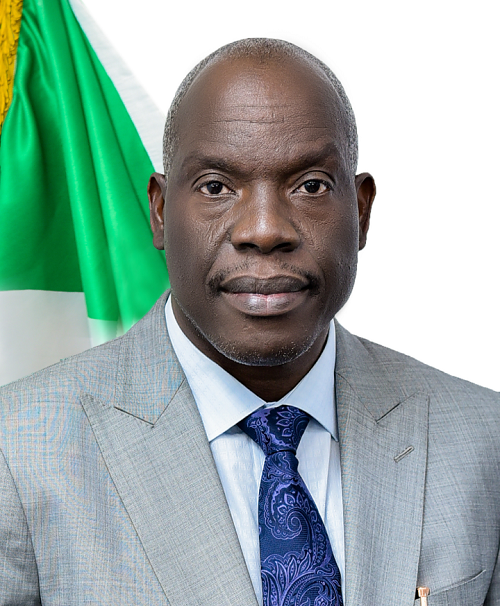Engr. Gbenga Komolafe, CCE NUPRC
…Oil and gas industry has a significant environmental footprint with responsibility to mitigate its impact.
-Felix Douglas
Engr. Gbenga Komolafe, Commission Chief Executive (CCE) of Nigerian Upstream Petroleum Regulatory Commission (NUPRC), pointed out at the Nigerian Oil and Gas Opportunity Fair (NOGOF) that Nigeria’s oil and gas industry has long been the mainstay of its economy, contributing significantly to the country’s foreign exchange earnings by providing substantial revenue for the nation’s development.
The NUPRC boss was of the view that it is crucial to acknowledge the sector’s role in economic history while recognizing the urgent need to adapt and transform it to meet future challenges and opportunities.
“To achieve sustainable growth in the oil and gas sector, robust upstream investments are essential. Attracting both local and foreign investment requires concerted efforts to create an enabling environment characterized by stability, transparency, and regulatory certainty. Investors must have confidence in our legal and fiscal frameworks, confident that their investments are secured and will deliver profitable returns.”
Engr. Komolafe said production growth, on the other hand, hinges on optimizing existing resources and exploring new frontiers. This involves adopting cutting-edge technologies and best practices to enhance efficiency and reduce operational costs. It also means investing in infrastructure development to support exploration, development and production activities. “By doing so, we can maximize our production capacity and ensure a steady.”
Engr. Komolafe was of the view that as Nigeria focuses on investment and production growth, the country must not lose sight of the need for sustainability and environmental stewardship. The oil and gas industry has a significant environmental footprint, and it is its responsibility to mitigate its impact.
This involves adopting cleaner technologies, reducing emissions, and ensuring responsible resource management.
NUPRC is positioned and has developed various initiatives that align with the national goals and the Petroleum Industry Act 2021 (PIA). The Commission recognises the connectivity between climate change and energy security, particularly within the context of upstream petroleum operations. The Commission is committed to fostering a sustainable and resilient industry that minimizes its environmental impact on host communities, while optimising hydrocarbon development for collective benefit.
The Commission has unveiled and issued the Upstream Decarbonization and Sustainability Blueprint at the just concluded Upstream Decarbonization and Energy Sustainability Forum. The Blueprint was co-created with the industry to serve as a roadmap for low-carbon operations and attainment of net-zero aspiration of the country.
The establishment of Host Community Development Trust (HCDT), Nigerian Upstream Petroleum Host Community Development Regulation (NUPHCDR), and implementation framework developed by the Commission plays a vital role in shaping a sustainable future for Nigeria’s oil and gas industry.
This includes investing in community development projects, health care, education, and infrastructure to foster positive relationships with the communities in which it operate.
According to Engr. Komolafe, driving investment and production growth in Nigeria’s oil and gas industry requires a multifaceted approach. It demands creating a favourable investment climate, developing indigenous capacity, and ensuring sustainability through environmental stewardship.
“By working together, we can shape a future where the oil and gas sector continues to be a pillar of our economy, contributing to national development and improving the quality of life for all Nigerians.”


Comment here